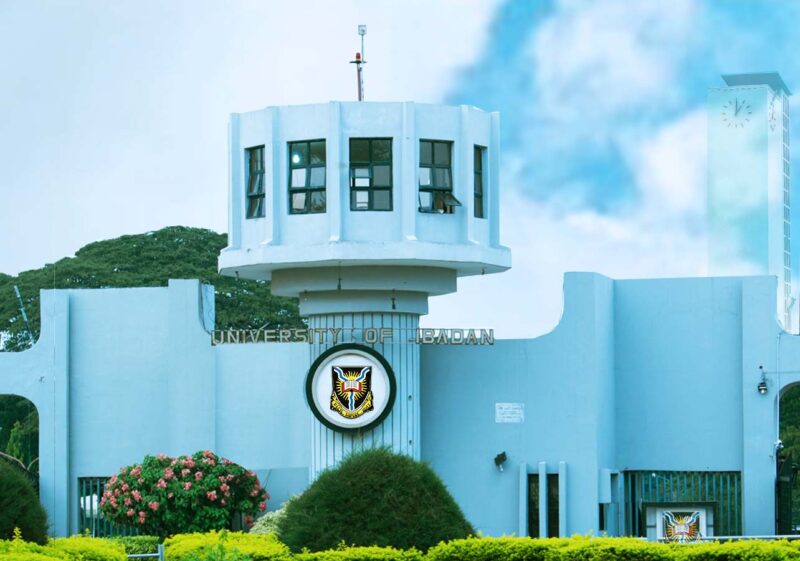News
FULL LIST: UI Emerges Nigeria’s Best Varsity For 2026

University of Ibadan, Oyo State, has been ranked Nigeria’s best university in the Times Higher Education World University Rankings 2026, as reported by PUNCH Online.
The ranking, published on THE’s website on Thursday, placed the Ibadan-based federal university between 801 and 1,000 globally and ahead of other leading Nigerian universities, a spot it last held in 2023.
The survey surveyed 2,191 institutions from 115 countries and assessed them based on 18 performance indicators across five key areas: teaching, research environment, research quality, industry, and international outlook.
UI came from fourth position in 2025 to emerge as Nigeria’s best in the 2026 ranking. It dethroned Covenant University, which was the best university in 2024 and 2025.
Following UI are the University of Lagos, Bayero University, and CU, ranked second, third, and fourth in Nigeria, respectively.
The 2026 list reflected a shift in the global higher education landscape, with more than 174.9 million citations from 18.7 million research publications analysed and survey responses from over 108,000 scholars collected globally.
THE rankings also show the strength of individual institutions. UNILAG is ranked highest in quality research, scoring 66.7.
BUK is ranked as the best Nigerian university in terms of international outlook, while Covenant has the highest industry score, indicating its top connection to industries.
Out of 51 Nigerian institutions featured in THE 2026 ranking, only UI and UNILAG fall between 801–1000; BUK, CU, and Landmark University fall between 1001–1200; while five schools—Ahmadu Bello University, Federal University of Technology, Minna, University of Ilorin, University of Jos, University of Nigeria—stand globally between 1201–1500.
Also, 14 Nigerian universities were categorised above 1501, and 27 institutions were not ranked.
See the full list
University of Ibadan (801–1000)
University of Lagos (801–1000)
Bayero University (1001–1200)
Covenant University (1001–1200)
Landmark University (1001–1200)
Ahmadu Bello University (1201–1500)
Federal University of Technology, Minna (1201–1500)
University of Ilorin (1201–1500)
University of Jos (1201–1500)
University of Nigeria, Nsukka (1201–1500)
Babcock University (1501+)
Delta State University, Abraka (1501+)
Ekiti State University (1501+)
Federal University of Agriculture, Abeokuta (1501+)
Federal University of Technology, Akure (1501+)
Federal University of Technology, Owerri (1501+)
Federal University Oye-Ekiti (1501+)
Ladoke Akintola University of Technology (1501+)
Lagos State University (1501+)
Nnamdi Azikiwe University (1501+)
Obafemi Awolowo University (1501+)
University of Benin (1501+)
University of Calabar (1501+)
University of Port Harcourt (1501+)
Admiralty University of Nigeria
Akwa Ibom State University
Al-Hikmah University
Augustine University
Bamidele Olumilua University of Education, Science and Technology, Ikere-Ekiti
Bauchi State University, Gadau
Bayelsa Medical University
Baze University
Bells University of Technology
Bowen University
Evangel University, Akaeze
Federal University of Lafia
Federal University of Petroleum Resources, Effurun
Fountain University
Godfrey Okoye University
Igbinedion University Okada
Kaduna State University
Lagos State University of Education
Lagos State University of Science and Technology
Lead City University
Maryam Abacha American University of Nigeria
Nasarawa State University, Keffi
Redeemer’s University
Rivers State University
Thomas Adewumi University
University of Cross River State
University of Delta
According to PUNCH Online, THE is a globally recognised independent organisation that provides data and analysis for the higher education sector, including the widely adopted World University Rankings.
While data submission is open to all universities, institutions are only ranked in the World University Rankings 2026 if they teach undergraduates, produce research across a range of subjects and have published at least 1,000 research publications between 2020 and 2024, with a minimum of 100 a year.













